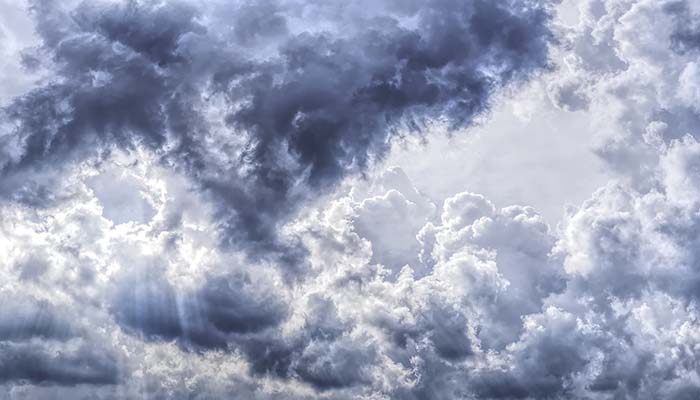Faculty earn DOE Awards for Atmospheric Research
Ryan Noone
Jul 19, 2021

Carnegie Mellon University’s Coty Jen and Hamish Gordon have earned Department of Energy (DOE) awards for their work in atmospheric research.
The DOE recently awarded $15.6 million for new research studying the properties, formation and interactions between atmospheric clouds and the aerosols that form them. As part of the Biden Administration’s effort to combat the climate emergency, the awards will help the country’s top scientists and engineers better understand one of the most challenging aspects of earth system modeling and improve their ability to predict weather and climate patterns accurately. Jen and Gordon’s projects are two of 27 selected for the award.
“The Earth’s atmosphere holds the answers to how our planet is changing in the face of the climate crisis, as well as how we can predict and mitigate the effects,” said Secretary of Energy Jennifer M. Granholm. “By putting some of America’s most talented researchers on the case, coupled with DOE’s unparalleled scientific capabilities, we’ll gain a better understanding of how this crisis is unfolding—paving the way for solutions that leave a safer, healthier world for our children and grandchildren.”
Coty Jen, assistant professor in CMU’s Chemical Engineering Department, received the award for her project, “Vertically-resolved measurements of atmospheric nucleation precursors.”
Atmospheric nucleation, a process where gases react to form stable nanoparticles, contributes most of the seed particles for cloud formation at altitudes above the surface layer. Consequently, higher altitude nucleation plays a vital role in cloud properties and Earth’s climate. Freshly formed particles have been observed in the upper boundary layer, yet the nucleation processes forming these particles remain poorly understood. This is primarily due to instrument limitations that prevent the measurement of nucleation precursor gases above the ground level.
Jen’s group is developing a new low-cost, robust and portable instrument, capable of being flown on drones or tethered balloons, to measure reactive gases 1 kilometer from the surface. The new tool will allow researchers to better understand how precursors are transported to higher altitudes and how their resulting nucleation rates impact aerosol number concentrations aloft.
“The climate is changing, and there are incredibly complex feedback loops that impact the chemistry of the atmosphere and Earth’s radiative budget,” said Jen. “Understanding all of the atmospheric processes that influence climate are vital in predicting how the climate will change over the next few decades and give us a better understanding on how various climate change mitigation strategies will play out in the long run.”
Hamish Gordon, assistant research professor in CMU’s Engineering Research Accelerator, was awarded for his project, “Insights from ARM observations into aerosol processing and transport by extratropical cyclones and aerosol effects on cyclone clouds.”
Extratropical cyclones are low-pressure systems that drive much of the weather in the United States. In the remote marine atmosphere over the North Atlantic Ocean, cyclones frequently create favorable environments for the formation of new atmospheric particles and are key to the transport of air pollutants into the upper troposphere. In collaboration with the University of Wyoming, Gordon’s group is working to understand how clouds in these cyclones behave and how they are affected by human activities in order to better constrain climate models and sharpen predictions of future global temperature rises.
The study will use data from surface, aircraft and satellite instrumentation and high-resolution model simulations, provided by the DOE’s Atmospheric Radiation Measurement station in the Azores Islands, to determine how these cyclones affect particulate matter concentrations in the atmosphere and the effects of the particles on cyclone clouds.
“Atmospheric system research is critical to better understanding Earth’s climate and how it will change in the coming decades,” said Gordon. “The U.S. is already being severely affected by climate change, and yet we still don’t know what the future holds.”
“The DOE program aims to give us a better understanding of the aspects of the Earth System most important to regulating climate by disentangling and analyzing atmospheric processes.”
